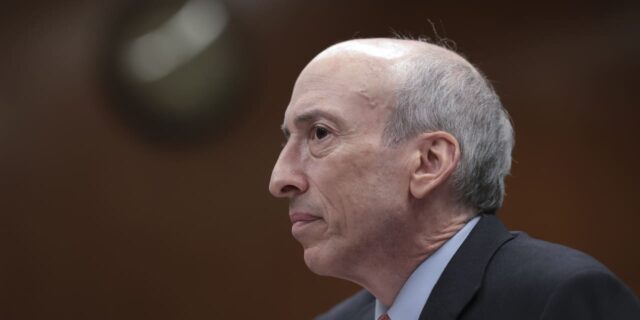The hedge fund industry is continuing its legal assault on the Securities and Exchange Commission, this time over a new rule the industry says would subject many funds to increased oversight as Treasury bond dealers.
The Managed Funds Association, Alternative Investment Management Association, and National Association of Private Fund Managers on Monday sued the SEC in a U.S. district court in Texas. They are seeking to vacate a rule the industry says would unfairly subject hedge funds to onerous regulation.
It’s just the latest lawsuit the hedge fund industry has brought to challenge the SEC’s authority. Groups have also brought suits over other issues such as new rules on short sales and how funds treat different classes of investors.
“The Commission undertakes rulemaking consistent with its authorities and laws governing the administrative process, and we will vigorously defend challenged rules in court,” an SEC spokesperson said.
When the agency approved the Treasury dealer rule in February, Chair Gary Gensler in a statement called the measures “common sense” and “consistent with Congress’s intent.”
Advertisement – Scroll to Continue
The SEC finalized the rule at issue last month. The mandate forces some trading firms to register as broker-dealers in an effort to address liquidity worries in the $26 trillion Treasury market, which underpins much of the global economy. The registrations would increase capital requirements for the firms and subject them to greater oversight.
The agency has said that some investment firms’ trading patterns make them de facto Treasury dealers, increasing the consequences to Treasury prices if a slew of them withdrew from the market in a crisis. As originally proposed, the rule would have required a firm to register if they traded more than $25 billion in Treasuries over a set period. The original rule also affected firms that bought and sold similar securities on the same day.
The agency walked back those provisions when it finalized the proposal. But the final rule still requires funds to register if they earn most of their revenue through capturing bid/ask spreads, from liquidity incentives offered by trading venues, or by offering to buy and sell securities near the best-available market prices.
Advertisement – Scroll to Continue
The associations say that the rules are still vague and will unfairly capture many funds. The lawsuit argues the SEC doesn’t have the authority to issue the new rule, that it is arbitrary and capricious, and that the agency didn’t properly weigh the benefits of the rule against its costs.
The lawsuit was filed in a district court that falls in the jurisdiction of the Fifth Circuit Court of Appeals, a court that historically has been skeptical of executive agencies’ authorities.
“If the rule is permitted to stand, it could mean that managers in scope and the funds they manage would lose their customer protections with their dealer counterparties and could not participate in IPOs,” said Managed Funds Association President Bryan Corbett in a statement. “This would harm funds, their investors, and issuers looking to raise capital.”
Advertisement – Scroll to Continue
The new lawsuit and inevitable appeals could take years to play out. As a result of how the applicable statute is written, the lawsuit is starting in a district court, rather than proceeding directly to the appeals court as previous industry litigation against the SEC has done.
Gensler’s term ends in 2026. So whether the lawsuits proceed to their conclusion could ultimately depend on who wins the next presidential election.
Write to Joe Light at joe.light@barrons.com




